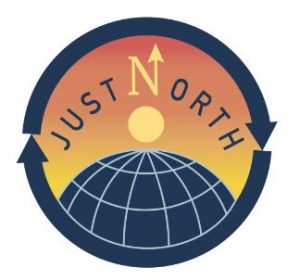Throughout the centuries, people have been keen to find and discover new areas and exploit the natural resources associated with them. According to Margaret Kohn and Kavita Reddy (2017), the term colonialism describes the process of European settlement and political control over the rest of the world, including the Americas, Australia and parts of Africa and Asia.
Joona, Tanja, and Juha Joona.
Throughout the centuries, people have been keen to find and discover new areas and exploit the natural resources associated with them. According to Margaret Kohn and Kavita Reddy (2017), the term colonialism describes the process of European settlement and political control over the rest of the world, including the Americas, Australia and parts of Africa and Asia. Colonial practices were also pursued by Asian powers (Japan and Korea). The reign of European colonialism reached its apex in the 17th and 18th centuries and it began to lose relevance in the 19th century while reaching a type of endpoint in the mid-20th century. Beyond settlement practices, according to Osterhammel (2005, p 16):
Colonialism is a relationship between an indigenous (or forcibly imported) majority and a minority of foreign invaders. The fundamental decisions affecting the lives of the colonized people are made and implemented by the colonial rulers in pursuit of interests that are often defined in a distant metropolis. Rejecting cultural compromises with the colonized population, the colonizers are convinced of their own superiority and their ordained mandate to rule.
In this, colonialism involves asymmetries in decision-making and in cultural domination.
Read the full article:
https://bristoluniversitypressdigital.com/display/book/9781529224832/ch009.xml
JUSTNORTH
JUSTNORTH is a project designed to explore the multitude of ethical systems that coexist in the Arctic, as a starting point to assess the viability of new economic activities in the region. For the millions of people who live both inside and outside the Arctic and are affected by these economic activities, decisions are made through utilitarian ethical principles: viability of an activity is based on profitability and technical feasibility, with little regard to questions of whether it is ethically right or wrong for the impacted human populations or the environment. Global climate change has launched intense speculation on Arctic resources. Increasing geopolitical tensions among some of the Arctic states increases the importance of respecting different value systems while finding common values to help strengthen the links between Arctic and non-Arctic entities. Significant practice and policy gaps in existing Arctic economic activities have led to development that is unsustainable.
Through understanding current practices of development in the Arctic through the lens of 18 case studies, JUSTNORTH aims to develop conceptual frameworks, indices and a negotiation tool, for reconciling multiple ethics and value systems. These will provide a cornerstone for determining the viability of economic activities in the Arctic, as well as clarify policy, legal, and regulatory pathways for implementing ethic-based decision-making principles.
Global climate change has launched intense speculation on Arctic resources. Increasing geopolitical tensions among some of the Arctic states increases the importance of respecting different value systems while finding common values to help strengthen the links between Arctic and non-Arctic entities. Significant practice and policy gaps in existing Arctic economic activities have led to development that is unsustainable.
Through understanding current practices of development in the Arctic through the lens of 18 case studies, JUSTNORTH aims to develop conceptual frameworks, indices and a negotiation tool, for reconciling multiple ethics and value systems. These will provide a cornerstone for determining the viability of economic activities in the Arctic, as well as clarify policy, legal, and regulatory pathways for implementing ethic-based decision-making principles.
Project details
- Project title: “Toward Just, Ethical and Sustainable Arctic Economies, Environments and Societies”
- Funding scheme: European Union Horizon 2020 Programme (EU H2020, Grant agreement ID: 869327)
- Duration: 3 years (1 June 2020 – 30 November 2023)
- Project coordinator: Uppsala Universitet, Dr. Corine Wood-Donnelly
- Project website: www.justnorth.eu/
